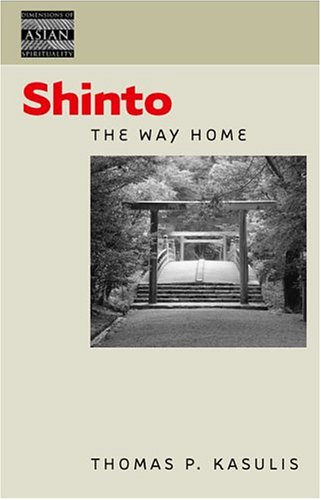Nine out of ten Japanese claim some affiliation with Shinto, but in the West the religion remains the least studied of the major Asian spiritual traditions. It is so interlaced with Japanese cultural values and practices that scholarly studies usually focus on only one of its dimensions: Shinto as a ""nature religion,"" an ""imperial state religion,"" a ""primal religion,"" or a ""folk amalgam of practices and beliefs."" Thomas Kasulis' fresh approach to Shinto explains with clarity and economy how these different aspects interrelate. As a philosopher of religion, he first analyzes the experiential aspect of Shinto spirituality underlying its various ideas and practices. Second, as a historian of Japanese thought, he sketches several major developments in Shinto doctrines and institutions from prehistory to the present, showing how its interactions with Buddhism, Confucianism, and nationalism influenced its expression in different times and contexts. In Shinto's idiosyncratic history, Kasulis finds the explicit interplay between two forms of spirituality: the ""existential"" and the ""essentialist."" Although the dynamic between the two is particularly striking and accessible in the study of Shinto, he concludes that a similar dynamic may be found in the history of other religions as well. Two decades ago, Kasulis' Zen Action/Zen Person brought an innovative understanding to the ideas and practices of Zen Buddhism, an understanding influential in the ensuing decades of philosophical Zen studies. Shinto: The Way Home promises to do the same for future Shinto studies.
- ISBN10 0824827945
- ISBN13 9780824827946
- Publish Date 7 September 2004 (first published 31 August 2004)
- Publish Status Out of Print
- Out of Print 18 February 2014
- Publish Country US
- Imprint University of Hawai'i Press
- Format Hardcover
- Pages 208
- Language English
